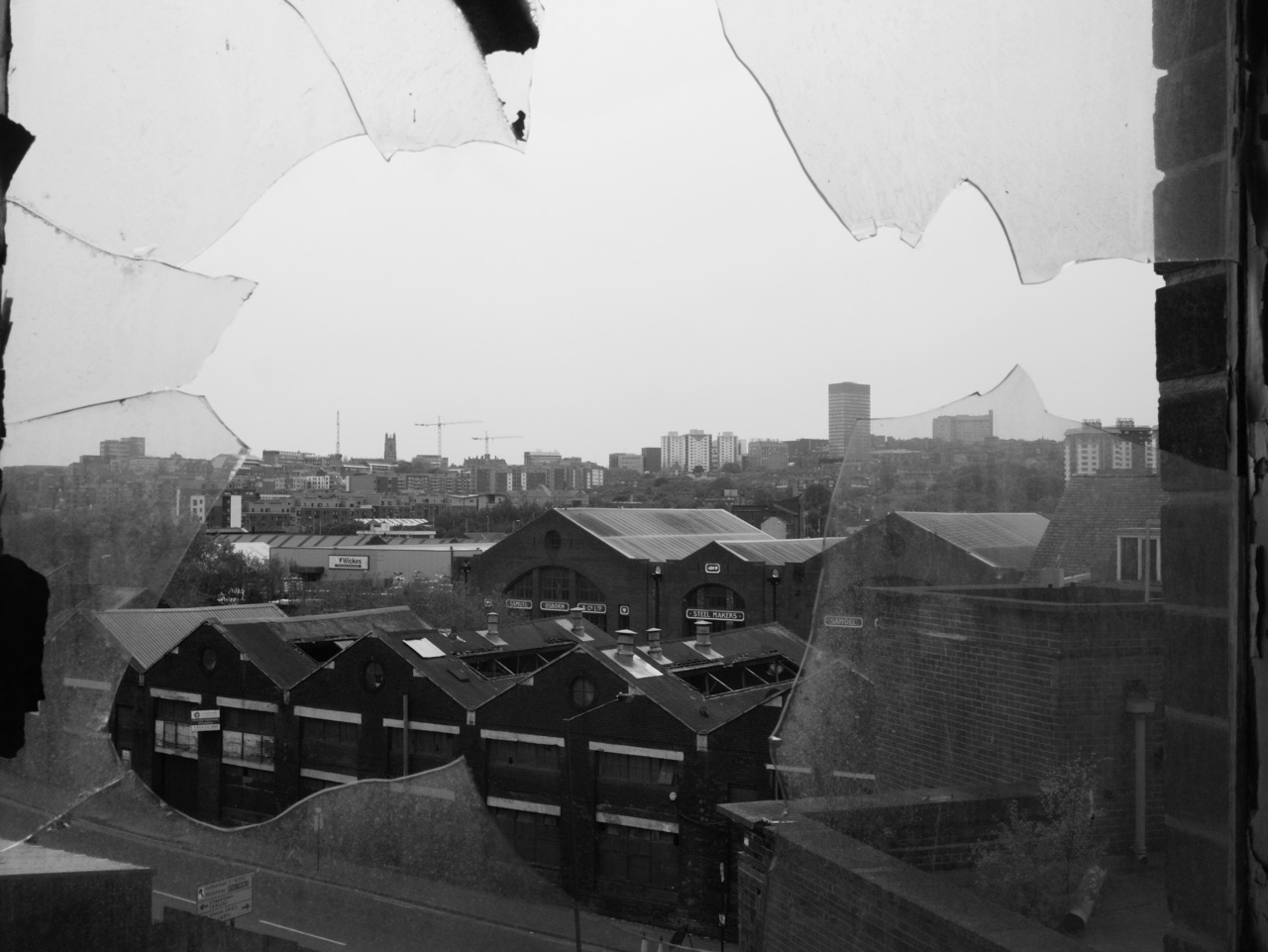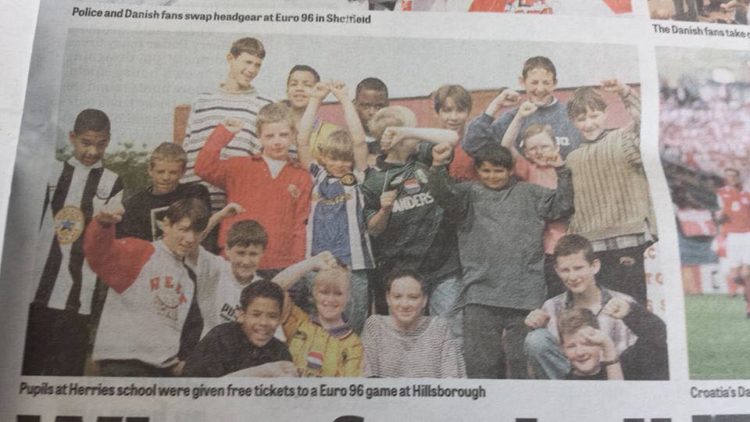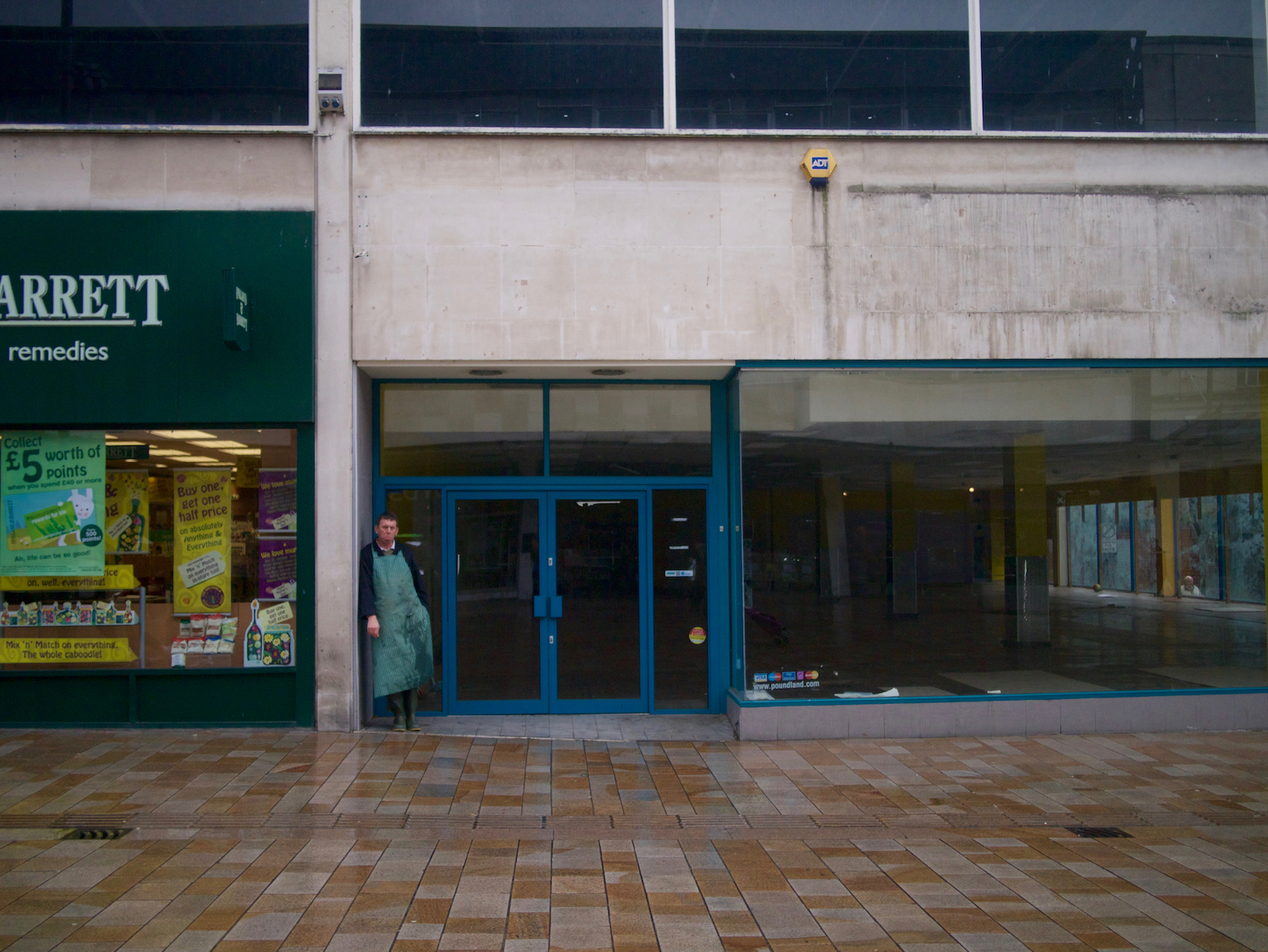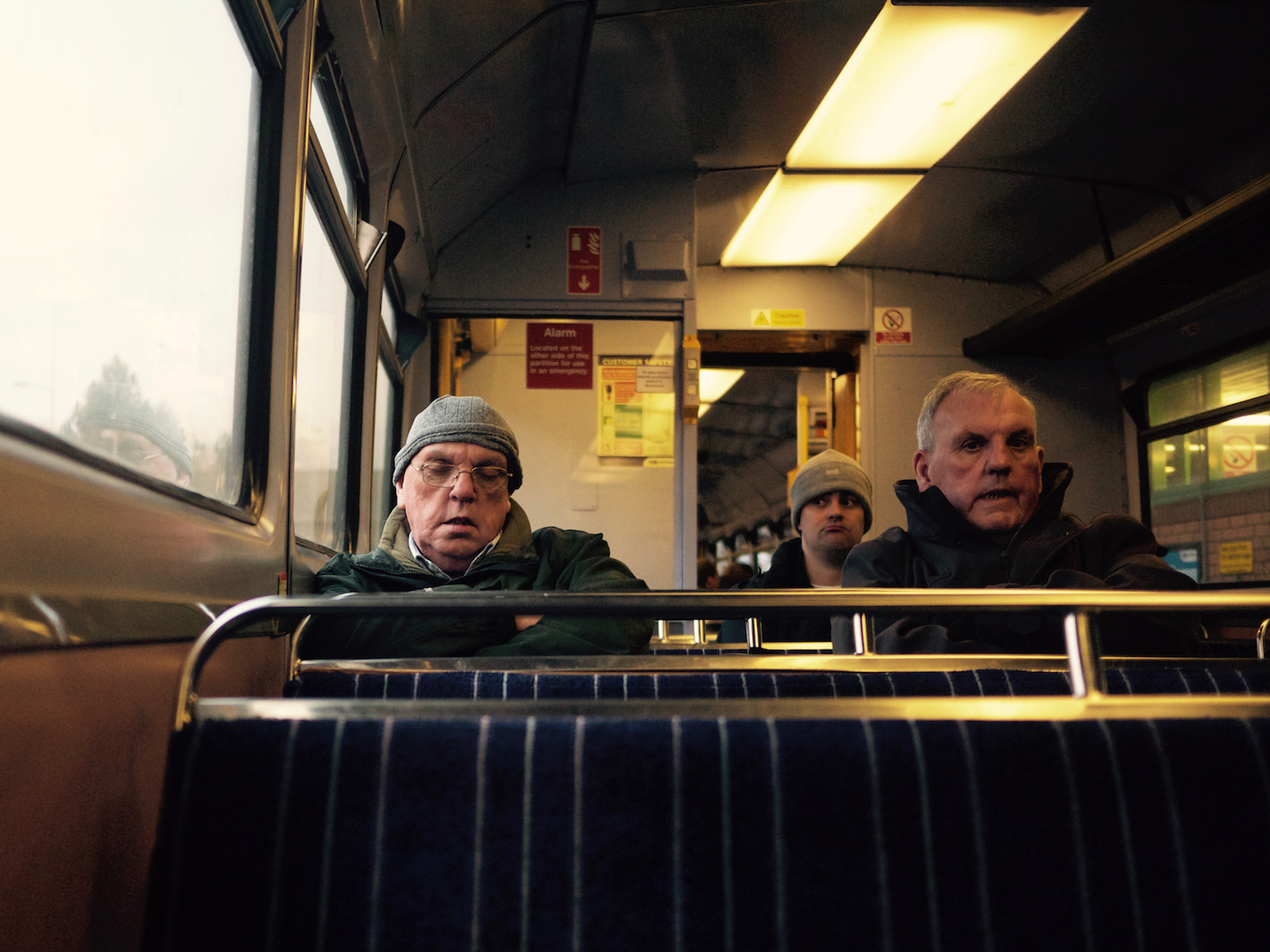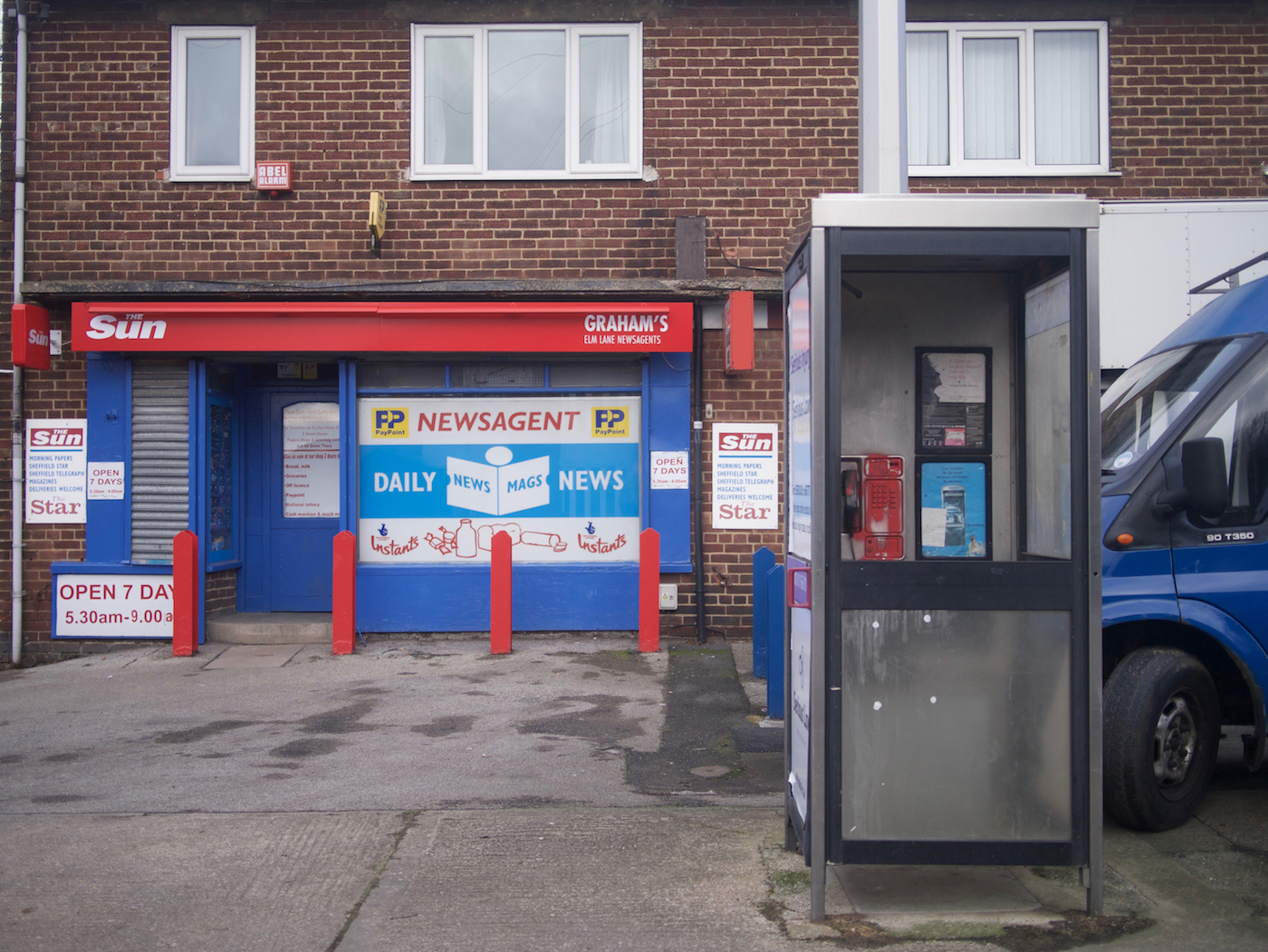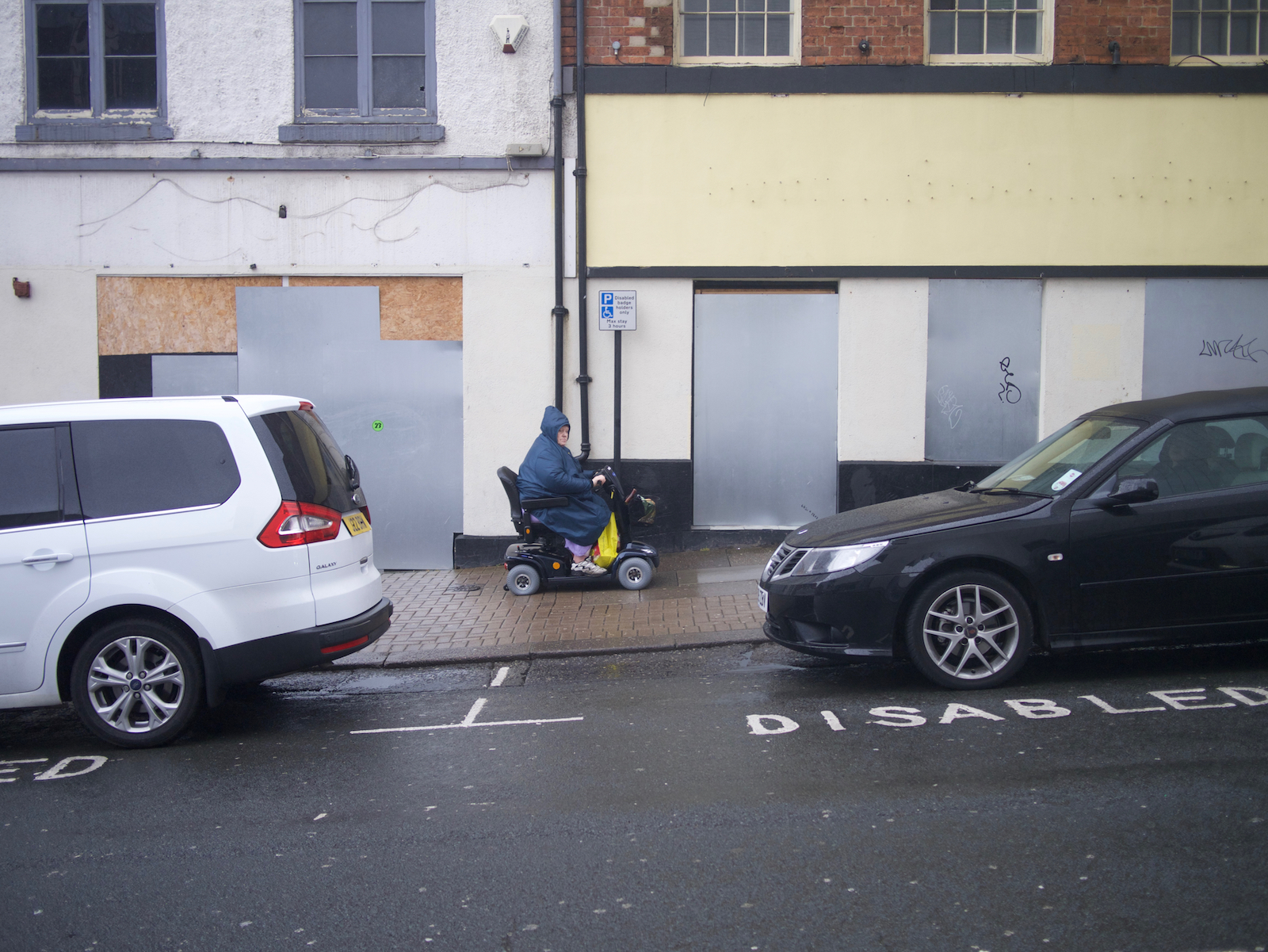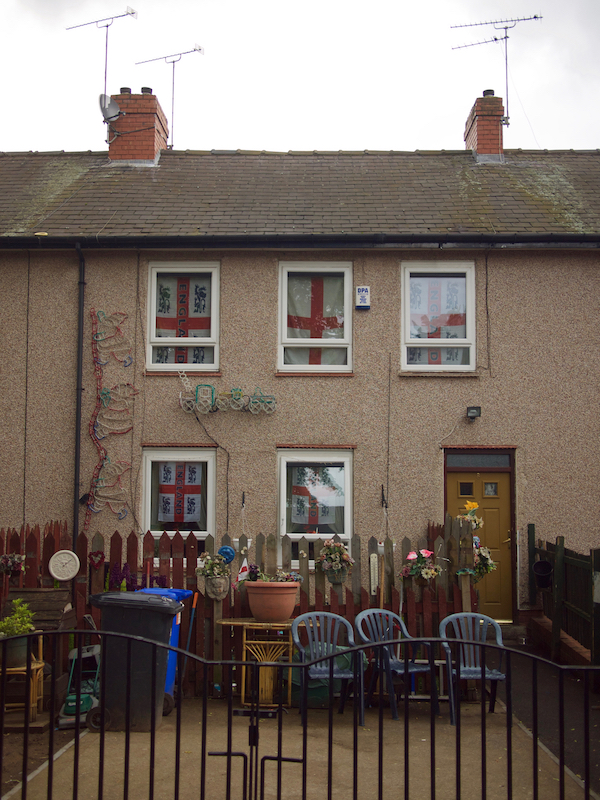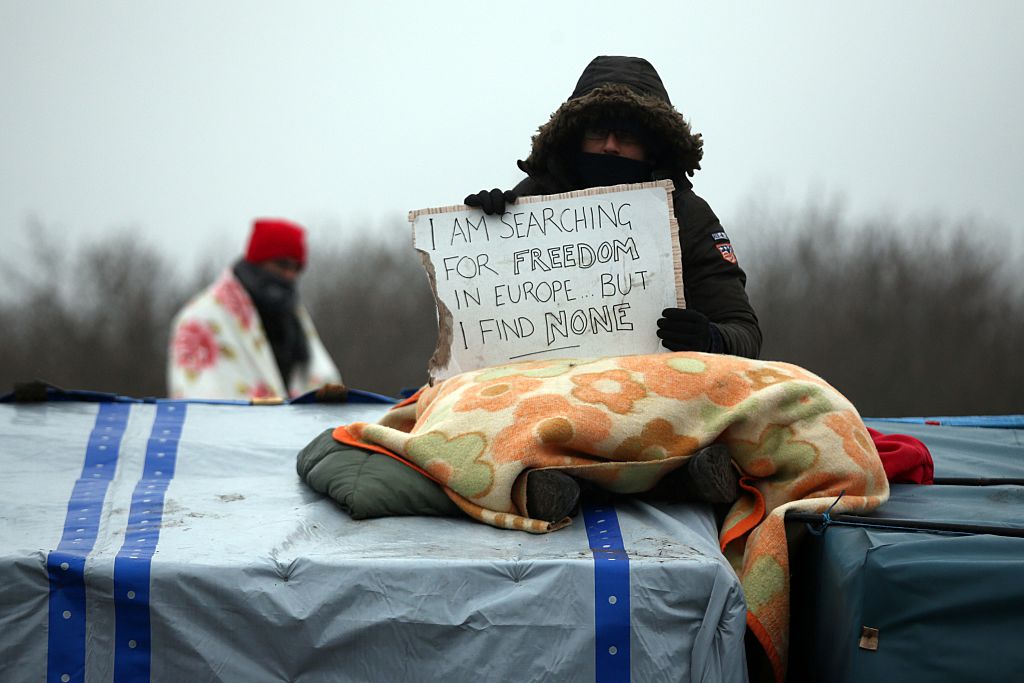I grew up in a working-class area of council housing on the outskirts of England’s fourth largest district, Sheffield.
Firth Park took its name from the industrialist Mark Firth and was originally built to accommodate workers in his steel factory. No wonder then, that after World War II the area became multicultural; Yemenis, Jamaicans and Pakistanis providing the extra manual labour Britain needed to rebuild itself, and Firth Park’s proximity to the industrial areas of Sheffield made sense as a base for these newcomers.
Born poor, black, working class and northern into Margaret Thatcher’s Britain in the 1980s, the Sheffield I remember growing up in was a carcass of industry, demoralised and stark, all crumbling brutalism and glittering grey pavements; after walking back from school I’d invariably spend five minutes pulling broken bits of glass out of the soles of my shoes when I got home.
Sheffield back then was known as the graffiti capital of Europe, every square inch covered by legendary art vandals: Fista, Mist1, Des, Crome, SB2. If all this sounds like a northern cliché, it’s because fiction followed fact: The Full Monty, a movie that defines ideas of post-industrial life in the north for many people, used Firth Park as its backdrop.
But hidden among this decrepitude was the beating heart of a community that pulled together to get by. Watching this change with the steady rise of the far right this last few years, it’s only now that I realise my childhood was spent in a kind of multicultural utopia. I faced barely any direct racism, my neighbours were Arabic, my street held Duvali celebrations and reggae parties, my friends were black, Asian, white… I found out later one of them was from an Irish traveller family. It was rough but fair, and if someone saw you struggling, – even the smackhead who lived a couple of doors up from my mother – they would never turn you away.
I’ve noticed how things have gradually begun to change.
This decade – since the financial crash really – I’ve noticed how things have gradually begun to change, not just in Sheffield, but also in other working class areas around the country. This year I got called a ‘nigger’ and a ‘black cunt’ for the first time in my life in the area of London in which I live, Rotherhithe. The last Remembrance Day, somebody dropped the old cliché on me: ‘go back to where you came from’. When my grandfather fought behind enemy lines in World War II, winning a Burma star, he wasn’t fighting for this.
Heading into Paris recently, with Euro 2016 underway, it struck me that it was the Britain of exactly 20 years ago that I hold most fondly in my heart, when we welcomed the continent to England for Euro ‘96. The thought saddened me because it made me realise that tournament was the last time I remember feeling truly proud to be British. My school (the now demolished Herries Secondary, at one time one of the most impoverished schools in England) was allocated tickets to one of the games, and I was lucky enough to be one of the pupils invited to attend. Here is a picture of me with my classmates on the day we went to the match.
When I look at this picture I’m filled with disappointment. As you can see we were a multicultural class, and there was barely any division along racial lines. But I know for a fact that some of the white pupils you see here, as adults, are now not only UKIP supporters but also supporters of the far-right English Defence League. As young people, they hung posters of 2pac on their wall and deified Bob Marley. They used words that had been influenced as much by patois as anything else. What happened?
To understand this change, look at the environment that surrounded us then: the Gulf War as we knew it was over. Decades of devastating (for the North) Conservative rule was coming to an end. We all thought Tony Blair was going to take us into a bright new millennium and as a country we were looking out at the world rather than being afraid of it or insecure about other cultures.
David Baddiel and Mike Skinner summed up a new generation of footy fans obsessed with Italian football, envying James Richardson as he sat reading Serie A news in sunny Turin cafes for Gazzetta Football Italia on Channel 4. We learned about socialist German football teams and Indian Kabaddi on Trans World Sport, stayed up past our bedtimes to celebrate that unique European eccentricity we were a part of – Jean-Paul Gaultier and Antoine de Caunes on Eurotrash, talking about a man from Macclesfield who made a living farting.
9/11 hadn’t happened, the word terrorism wasn’t racialised yet (rather, it suggested troubles in Northern Ireland), George Bush wasn’t around and Tony Blair hadn’t led us into war in Iraq. The global financial crash was still to come and so was David Cameron’s ravenously plutocratic reign as Prime Minister.
The bad leadership over the last 20 years has proved a disastrous combination: I’ve seen how the cynicism of governments about war and the economy led to an apathetic working class, newly waxed and fake-sun tanned, turned into ten-Bob millionaires by out of control lending. They had a bit of money, for once.
It was easier to blame those new neighbours next door with a different colour skin.
But when it all came crashing down somebody needed to be found who could take the blame. Corporate exploitation and greed were the root causes, everybody knew that, but it was easier to blame those new neighbours next door with a different colour skin or an Eastern European accent… the exploited. This Brexit disaster is due to the successive failure of all the three major British political parties that have all been in power: Conservatives, Liberal Democrats and Labour left an entire social class with nobody to vote for.
In Paris, thinking of that Euro 96 tournament 20 years ago, I watched English football fans pour out of bars, some of them witness to, or perhaps even a part of, a brutal fight with Russian fans in the South of France. They weren’t singing ‘football’s coming home’, but instead, with spite and aggression ‘Russia’s going home’, their faces red with drunkenness and rage.
Nigel Farage surfaced with a racist piece of political propaganda.
I’d just heard the news that the Labour politician Jo Cox had been murdered by somebody shouting ‘Britain First’: a vengeful killing by somebody who probably wanted his country back. On Facebook, friends and family members were spouting xenophobic trash, the kind that helped to create a climate in which this mentally unstable individual was moved into action. Nigel Farage surfaced with a racist piece of political propaganda; him with his stupid face, standing in front a group of brown faces, with the words ‘breaking point’ plastered across it.
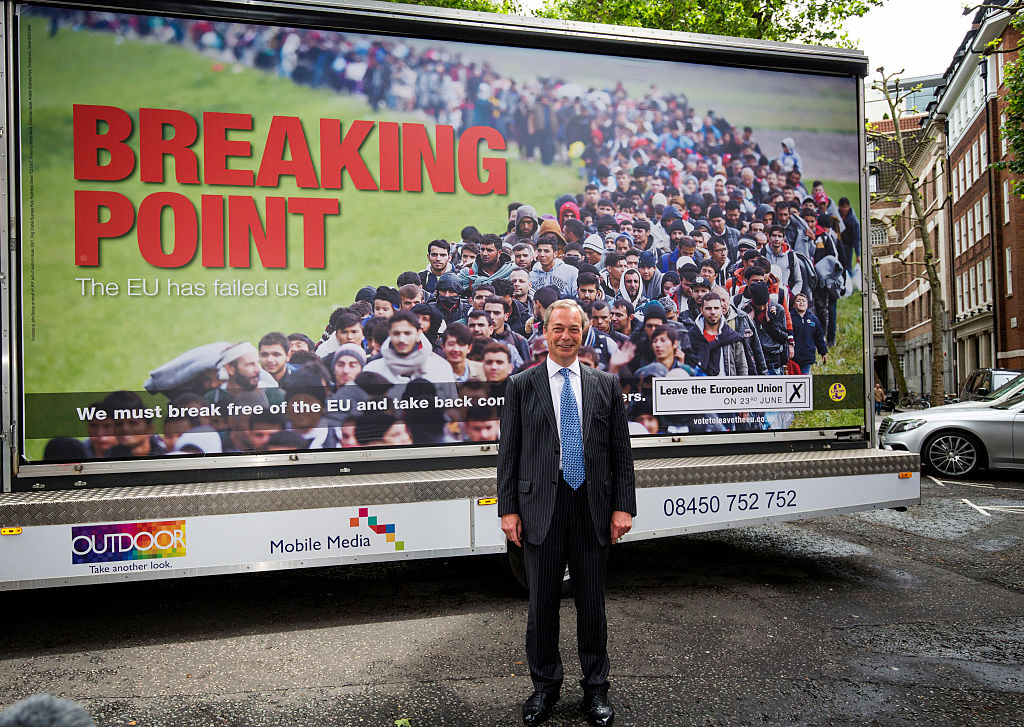
It made me think of an exhibition I’d attended in Berlin a few years ago called ‘Hitler and The Germans’. It reminded us that Hitler was made possible because of the people, rather than the other way round. He personified the pride, insecurity, fears, prejudices and misguided hopes of a nation low on confidence after the First World War. He made it okay to say ‘I’m proud to be German’ and reflected, with passionate words, the fears of being ‘overrun’ by, amongst others, a Jewish community reduced to caricatures. The murder and persecution, which can be seen with objective clarity and disgust now, from a distance, was at the time a fight for survival in the eyes of many Germans. If they didn’t act strongly, their way of life, their values, their very being was under threat and their fears were passionately embodied in the frenzied words of Adolf Hitler. Does this sound familiar?
Most of the Brexiters I’ve spoken to don’t really know why they wanted to leave.
The battle to leave the EU was largely won by a group of people who had been made to feel so powerless over the last couple of decades, so disconnected from decisions that have affected their life, that they were willing to take a leap into complete darkness. Most of the Brexiters I’ve spoken to don’t really know why they wanted to leave, and would answer my questions about how they thought leaving would improve their lives with vague, defensive one-liners they’ve seen in right-wing newspapers or racist social media groups like ‘I just want Britain to be great again’ and ‘I’m allowed my own opinion and I don’t need to explain myself. It’s called democracy’. They had been guided not just by bad political decisions, lies and greed, but by the media too.
For too long Britain has looked upon outlets such as the sexist and racist Sun newspaper as a sort of naughty, jaunty uncle. But I’ve watched them with disgust, as they have sandwiched racist sensationalist scare mongering in-between tits and football, giving people like Katie Hopkins a platform to describe drowned refugees…no, drowned humans as ‘cockroaches’. These kinds of statements spread on social media. The number of times I’ve seen the ‘Muslims ban Christmas’ idea shared in a low-quality meme with bad typography is frightening. As comedian Stewart Lee asserted, Christmas, obviously, was never banned by anyone.
But this brings me onto another matter. The hashtag #Londependence has recently been trending on Twitter; a call by disgusted liberals in the south to disassociate themselves from the ignorance and xenophobia of provincial Britain in the north. But the dislocation of London – the seat of British power and influence – from the rest of Britain is one of the key factors that have produced such a drastic situation. London has essentially been independent for way too long- this northern belligerence is caused by London indifference.
Stewart Lee somewhat personifies this pompous attitude.
I am a fan of his, but in many ways Stewart Lee somewhat personifies this pompous attitude in London. He’s an Oxbridge-educated millionaire London homeowner living in gentrified East London.
He’s resurrected his career by adopting a fiercely ‘politically correct’ high ground that mocks stupid, poor, uneducated white people, or ‘divs’ as he described them in a recent Guardian article. He’s working in a long tradition that started with another Oxbridge comedian, Sacha Baren Cohen and his Ali G, and is continuing with the recent Bafta nominated People Just Do Nothing.
They enjoy talking about socialism over caipirinhas.
This #Londependence lot are hipsters who hate hipsters, gentrifiers who deplore gentrification. They enjoy talking about socialism over caipirinhas at Shoreditch House. They earn 60-grand a year as TV producers, or owners of organic beer start-ups or Yoga studios, and they just sold their renovated two-bed in Peckham for half a mil but condemn a Tory government for the housing crisis. Completely and utterly oblivious that the rest of Britain has been falling apart at the seams for the last seven years, and now they’re shocked and horrified.
As somebody caught between all this, a working-class Sheffielder who works in the media industry and now lives in London, I feel distraught and disillusioned by Britain. But I recently found a bit of comfort in something cultural studies pioneer Stuart Hall once said:
‘Thinking about my own sense of identity, I realise that it has always depended on the fact of being a migrant, on the difference from the rest of you. So one of the fascinating things about this discussion is to find myself centred at last. Now that, in the postmodern age, you all feel so dispersed, I become centred. What I’ve thought of as dispersed and fragmented comes, paradoxically, to be the representative modern experience. This is “coming home” with a vengeance!’
The attitude of Britain has not only been despicable, but dangerous and idiotic.
We are witnessing the largest migration of people in the history of humanity, not just asylum seekers, political refugees and economic migrants but, as we urbanise, country folk moving into cities. This is happening across the world and it won’t stop.
In numerous studies it has been shown that the more an immigrant family are embraced into society, the less their children identify with the faith, cultures and traditions of their parents’ country and support and identify with their new, accepting home. The attitude of Britain has not only been despicable, but dangerous and idiotic.
On my way back from Paris I stopped off in Calais to pay a visit to the so-called ‘Jungle’. It confirmed my suspicions. People’s lives are hard there, and one man told me that in this limbo land it is hard to look back at the past, and frightening to look to the future. But all I could think was ‘you are the future’. I looked at the ingenuity, the will not just to survive, but thrive; restaurants, cafes, an underground economy were all evident amongst the DIY dwellings.
The immigrants are going to win.
Many of the Jungle’s inhabitants are educated, hungry, determined and creative. When I thought of this, and the sheer volume of the many mass migrations currently taking place, then look at ignorant, insular little England, no longer a part of the EU, probably about to lose Scotland, perhaps Northern Ireland, too, I know that one thing is for sure: if there really is a ‘war on immigration’, the immigrants are going to win.

